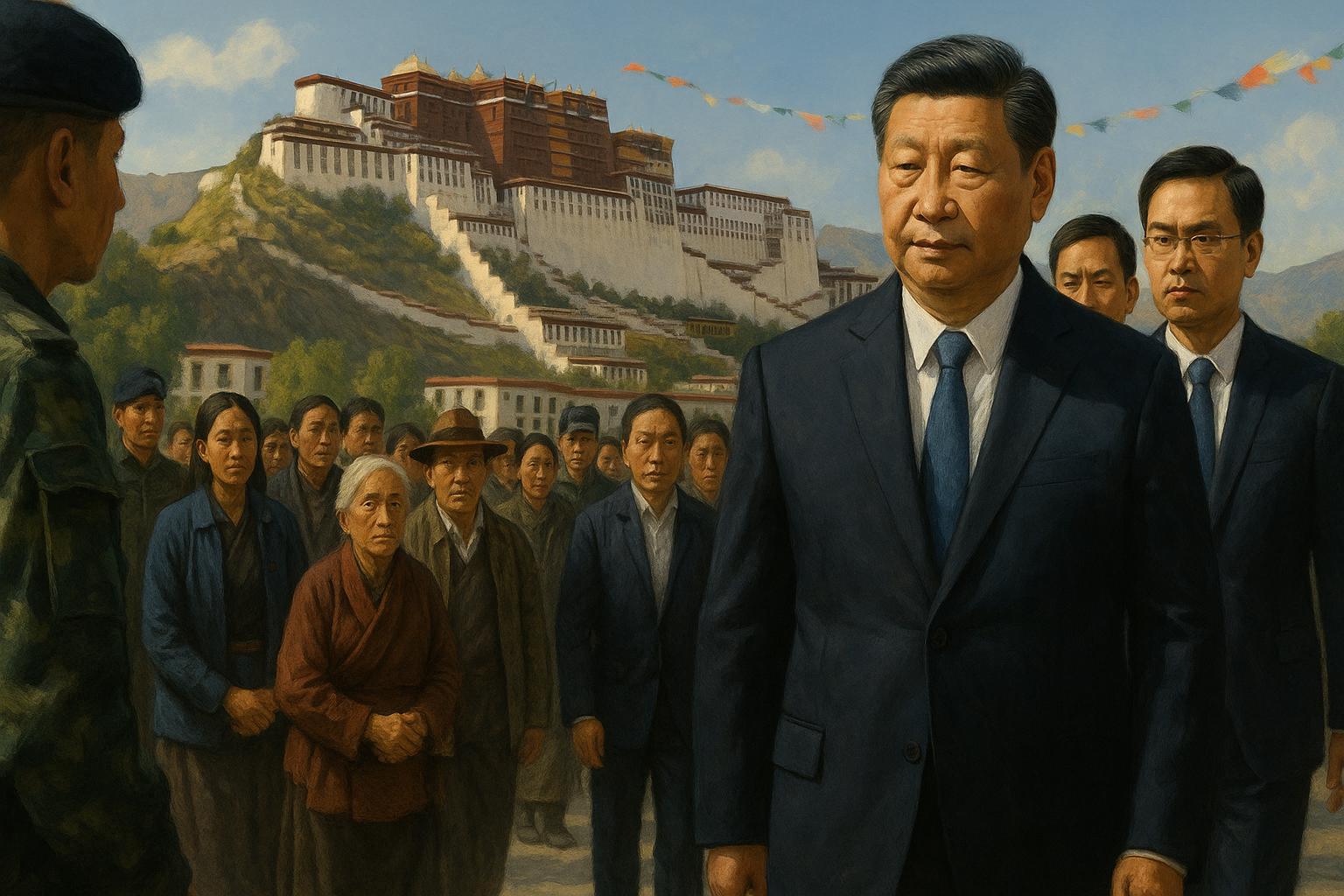Beijing struggles to showcase stability and harmony in Tibet during Xi’s visit; Criticised

Chinese President Xi Jinping’s recent visit to Tibet to celebrate the establishment of the Tibet Autonomous Region (TAR) was criticised by Tibetans living across the world, as they rejected the disputed region being a part of China. They said Xi’s visit rather showcased insecurity and a lack of confidence, even though the Chinese news media tried to present the event as a triumph of stability and progress.
Interestingly, Chinese media inadvertently echoed the Tibetans’ views when they quoted Xi as saying to senior officials, "To govern, stabilise and develop Tibet, the first thing is to maintain political stability, social stability, ethnic unity and religious harmony. To handle Tibetan affairs well, we must always adhere to the party’s leadership." Senior Chinese Communist Party leader Wang Huning claimed that Tibet witnessed “its best period of development” during Xi’s regime, even as he expressed anger over attempts to split Tibet from the mainland.
Xi sought to adapt Tibetan Buddhism to the Chinese socialist system and asked local officials to encourage Tibetans to write and speak in standard Chinese. All these efforts did not go well with the Tibetans. “Xi Jinping’s visit to Tibet should honour the Tibetan people’s rights – not showcase China’s oppressive control. True progress means freedom to preserve Tibet’s language, culture, identity, and environment,” said Tenzin Lekshey, spokesperson of the Central Tibetan Administration.
CCP forces occupied Tibet in 1951 and declared the TAR under the dictatorship of Chairman Mao Zedong. Since then, Tibet has experienced a systematic campaign of Sinicisation, including efforts to assimilate Tibetan Buddhism to the majority Han identity, the imposition of communist ideology, restrictions on religious and cultural practices, and political repression aimed at suppressing dissent and strengthening Beijing’s authority.
In the run-up to the recent anniversary event in the capital city of Lhasa, Tibetans were subjected to strict security checks, detentions, and blockades. During state-orchestrated celebrations for Xi Jinping’s second visit to Lhasa, Chinese authorities deployed significant security forces to project stability and harmony. Tibetan activists and individuals perceived by the authorities as undermining the state’s image have faced restrictions on their movement or have been barred from entering Lhasa.
Xi’s second visit to Tibet in five years signalled a problem, even though Beijing painted a rosy picture. “Despite more than six decades of CCP rule, Tibet is essentially a police state and arguably the most surveilled region in the whole of PRC. Xi’s visit to Lhasa to mark the 60th anniversary of the founding of the Tibet Autonomous Region rings hollow because Beijing lacks both historical and popular legitimacy over its presence in Tibet,” said Namgyal Choedup, the representative of the Office of Tibet in Washington.
Even though Chinese media tried to make the visit an event of grandeur, the actual time of the celebration was announced just 12 hours earlier, which reflected the Beijing government’s insecurity. “This unprecedented and high-ranking delegation to Tibet on the 60th anniversary of the creation of a so-called Tibet Autonomous Region reflects China’s deep insecurity in Tibet and need to perform leadership and assert their authority in Tibet,” said Tencho Gyatso. “The irony of this anniversary is that the celebrations must occur in secrecy without public announcements of the celebration time and strict controls on public activities.”
Rejecting the claims of Tibet being Chinese territory, the Tibetan diaspora questioned the celebrations when the local population was subjected to repression by China. “The visit, staged amid tightened restrictions on access for journalists and diplomats, highlights China’s effort to project confidence and control, even as Tibetans inside Tibet remain denied basic freedoms and continue to call for genuine autonomy and the Dalai Lama’s return.”
Robert Barnett, a researcher at the London-based School of Oriental and African Studies, said Xi’s second visit to Tibet in five years displayed “a fear that Tibetans are still disloyal in their hearts even after many decades under Chinese rule.” The Sinicisation of Tibetan religion and the enforcement of communist ideology emerged from this fear, he added. “This fear of hidden disloyalty seems to be why Xi is constantly demanding ever more political education of Tibetans.”
Civil rights were denied to local Tibetans during Xi’s visit, which highlighted “the stark contrast between China’s curated narrative of stability and the harsh repression” faced by Tibetans. Heavy-handed tactics, including pervasive surveillance and large-scale security forces, continue to be increasingly deployed across Lhasa and all of Tibet, underscoring China’s determination to project a false veneer of harmony while silencing dissent.




![From Kathmandu to the World: How Excel Students Are Winning Big [Admission Open]](https://nepalaaja.com/img/70194/medium/excel-college-info-eng-nep-2342.jpg)
